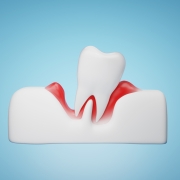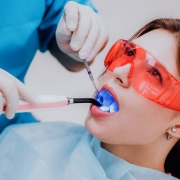How Does Dental Bonding Improve Smiles?
Even slight stains or tiny chips can have a big impact on your smile. If you find yourself hiding your teeth while smiling, it’s time to explore ways to conceal or correct flaws. Dental bonding offers an effective and simple way to do that. Our dentist in Jacksonville, FL, at Mandarin Dentistry provides this cosmetic service to patients who want to enhance their smile. Let’s go over how it works!
Multiple Uses Available
What are you interested in improving? With dental bonding, you can hide several types of flaws, including:
- Discoloration or stains
- Minor chips and cracks
- Misshapen teeth
- Spaces between teeth
How It Works
Bonding involves having tooth-colored composite resin placed on the surfaces of your teeth. This material adheres to your teeth, covering up imperfections and boosting your smile! We only need to minimally prepare your teeth for bonding, making it a less invasive treatment. Once the material is on, we use UV light to cure it.
What Are the Benefits of Bonding?
Dental bonding provides a few important advantages for patients who want to improve their smile, including:
- Quick process that doesn’t involve multiple visits
- Cost-effective option compared to other cosmetic treatments
- Minimal tooth alteration needed to prepare for bonding
When you have bonding on your teeth, you can expect it to last for about a decade or less. We can touch it up as needed to keep it in good condition!
Set Up an Appointment Today for Dental Bonding!
Tired of minor tooth flaws? Our dentist at Mandarin Dentistry offers dental bonding in Jacksonville, FL, to cover up stains, small chips, and other cosmetic problems that affect your smile. We can get your teeth looking their best again with this cosmetic treatment!





